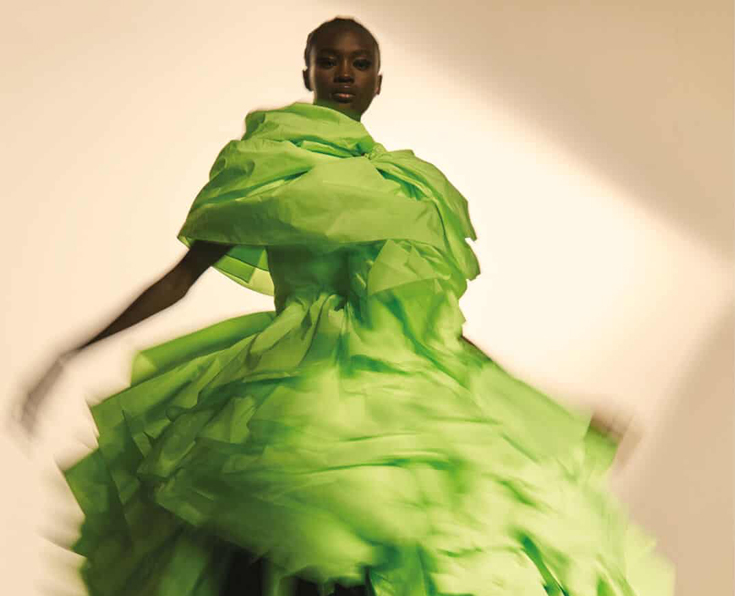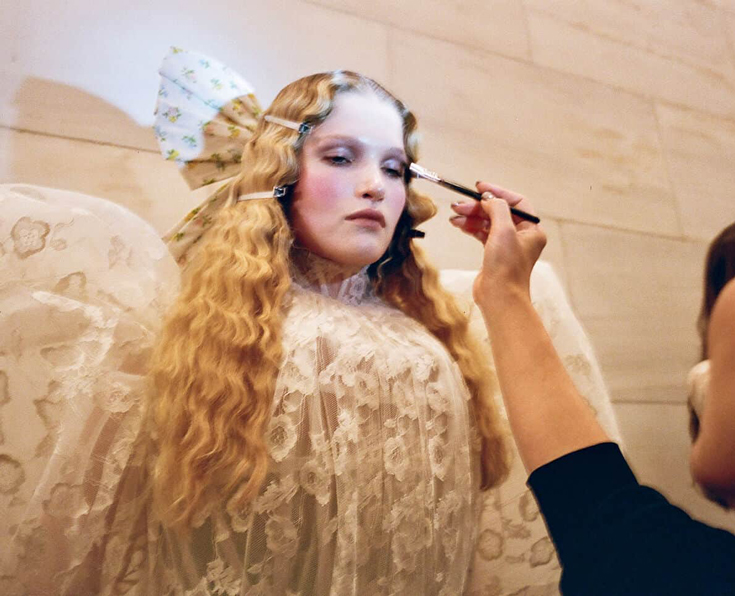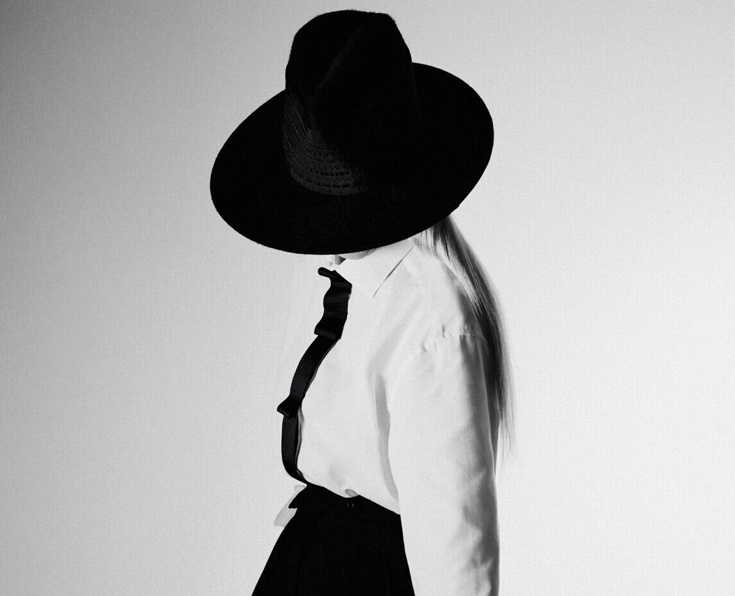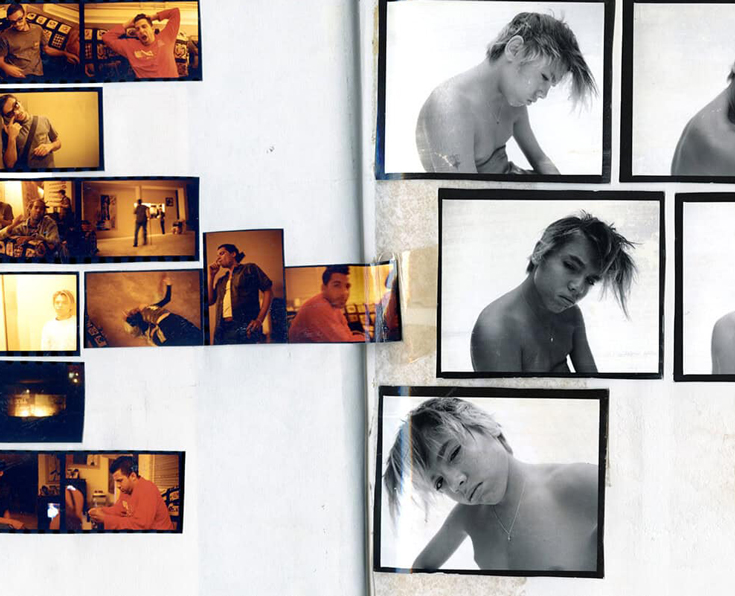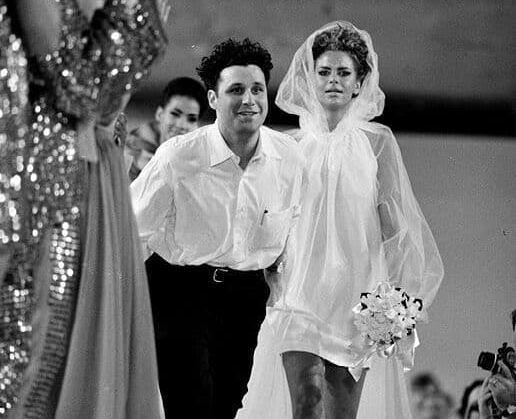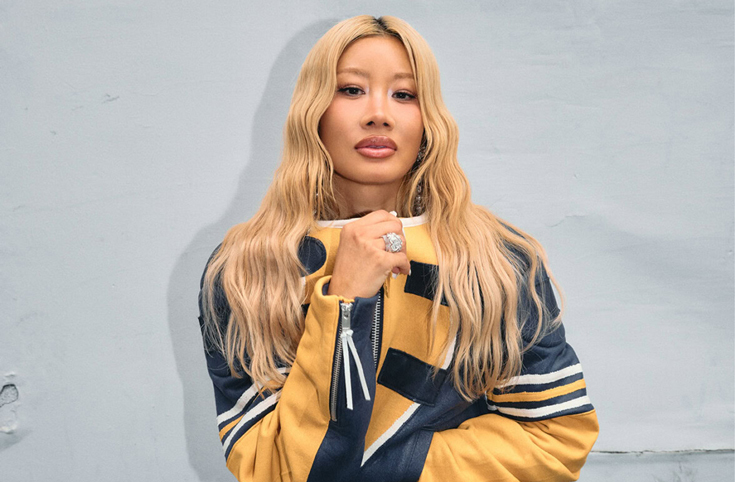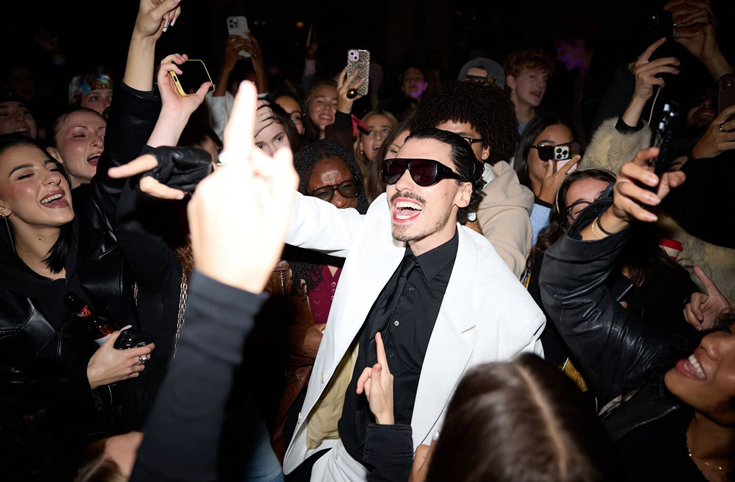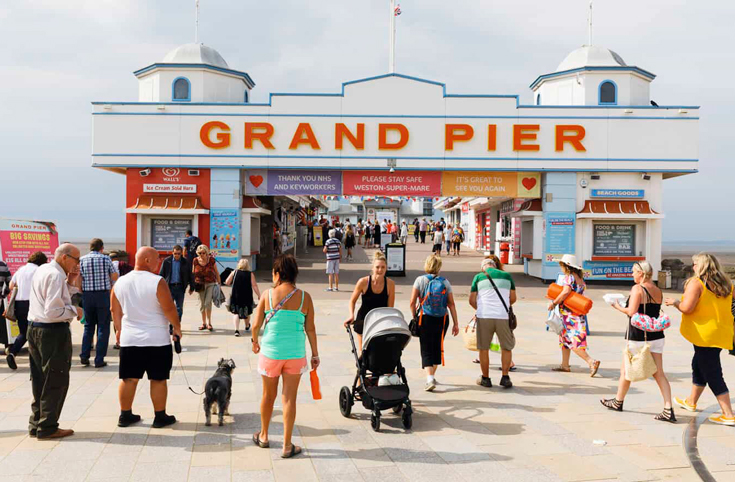TEN READS: LIFE AS A WAR REPORTER

In the new issue of 10 Magazine Australia, we hear from Clarissa Ward about life as a war reporter.
Clarissa Ward is a renowned conflict reporter. Currently the Chief International Correspondent for CNN, she has covered every major conflict of the last twenty years including in Iraq, Syria and Afghanistan. More recently she has reported from the war in Ukraine. In 2020, her memoir, On All Fronts, detailed her career in the world’s conflict.
In this extract, it’s 2012 – Ward and her producer, Ben Plesser, have smuggled themselves over the Syrian border and are embedded with the Syrian Liberation Army, a group of rebel fighters who opposed Assad’s rule. They live with their host’s family and follow the group on training exercises and missions. In this extract, Ward describes how the group comes under attack – she and her colleague must run for their lives under a hail of gunfire.
Abu Ibrahim’s mother and father lived in the house next door along with his two brothers and their families. One of them was hugely fat and aptly nicknamed the Buffalo. The other, Azzu, was tall and skinny with an extraordinary bushy moustache that he twirled proudly at the ends. His wife and the Buffalo’s wife and Abu Ibrahim’s wife would spend most of their time sitting together upstairs and taking care of the children. As well as being family, they were one another’s only real companions. Women in this part of Syria didn’t go out much. It was a conservative society, and their role was to take care of the house and the children, to make coffee and clean and now to prepare huge trays heaped with delicious food for the American journalists living downstairs. I would often go up there to chat with them and play with the kids.
Abu Ibrahim had four beautiful sons. The youngest, Bilal, was just three years old. He was intrigued and a little bit frightened by this funny woman with yellow hair who was sleeping in his house and spoke his language with a weird accent. Our favourite game was a sort of hide-and-go-seek that would culminate in me scooping him up and making monster noises as I smothered him in kisses. Being an only child, I bathed in the cosiness of such a big, loving family.
Next to the house was a large space that looked like some kind of workshop, full of tools. Members of the Syrian Liberation Army would meet there at night to discuss upcoming operations. One day, Abu Ibrahim proudly showed us a secret project they had been working on. The men only had light weapons and they were no match for the machine guns and artillery of the Syrian army. With that in mind, they had built themselves a catapult. I stared in disbelief at the crudely improvised weapon – it looked like a child had built it. The story of David and Goliath immediately leaped into my mind. I felt a twinge of sadness that they could do nothing but put their faith in such a contraption.
We joined Abu Ibrahim as he led a few training sessions in the cherry orchard. It was clear that learning the basics of how to handle an AK-47 was not going to transform a few dozen farmers and grocers into a functional, fighting force.
Despite their lack of equipment, the men were sustained by their knowledge of the terrain, faith in their cause, and sheer blind courage. Or most of them. Muhanned embodied everything that was wrong about the Syrian opposition and especially its self-proclaimed leaders. In his mind, the revolution was supposed to be fun and easy. He would be the alpha male and ride into Damascus on the back of a pickup truck, basking in popular adoration before being lifted up on the shoulders of the crowd and inaugurated as Syria’s next leader.
“A lot of chiefs and no Indians,” Ben would say.
Standing now on that hillside in the drizzle, with bullets whizzing by and a growing sense that no one had a clue what was going on, Muhanned looked like a little boy wishing he’d stuck with selling cars in Korea. He flashed demented smiles at me and brandished a handgun he had clearly never used. To demonstrate his bravery and stealth, he crept toward the edge of the house and peeked around the corner – a bullet hissed past him. Muhanned’s head snapped backward in shock. He lit a cigarette and drew heavily. This was not what he had signed up for.
“I do not want to die with you, my friend,” I thought to myself.
Ben had run off to shoot some video, instructing me to stay put and Muhanned to keep an eye on me. That seemed like hours ago. The gunfire was relentless.
A few men had already started running up the hill back toward the town. No one had two-way radios. No one knew how to fight.
Moments later, the rebels took their first casualty. A twenty-three-year-old mechanic called Fouad Khashan was shot in the head. Abu Ibrahim struggled under gunfire to pick up the young man and carry him away from the front line but he buckled repeatedly under the weight of Fouad’s body. Another fighter came and tried to help. They each grabbed an arm and began to drag him, stumbling in the thick, slippery mud as they tried to duck beneath the hail of bullets.
Ben came running toward me, panting. “They’re bringing the guy who got shot around this way to get him out to a hospital. Stand in front of the camera and I’ll tell you when they’re behind you. And then do a piece to camera and don’t screw it up because we can only do it once.”
I looked behind my shoulder and saw the men running toward us, carrying Fouad. He was wearing a turquoise bomber jacket. His bloodied head lolled back. He showed no sign of life.
“Go!” Ben shouted.
I looked into the camera and began talking. “They tried to reclaim this checkpoint, they haven’t been able to do it yet, and now there is a casualty. Someone has been hurt very badly, they’re trying to take him to a hospital.”
It was a very basic account of what was going on, but events behind me were telling the real story. Fouad’s limp body was stuffed into a car, which screeched off out of sight.
“Nice job,” Ben said.
I looked around. Muhanned was gone. He had jumped into the car with the dead guy to catch a ride back to safety. Thanks a lot, asshole, I thought to myself. More and more of the men were now running back up the hill toward the town.
I looked at Ben with panic. “What do we do now?”
“They’re retreating so we have to run back.”
I surveyed the olive grove sloping up toward the town. There was a road that cut it in two, but that wasn’t safe to use. Every fibre of my being wanted to go inside the farmhouse and hide under a bed until it was all over. “Can’t we wait here for a few hours and then go back once it’s quiet?” I suggested lamely.
“Nope, we’re about to be on the wrong side of the front line. We have to run.”
The rain seemed to be coming down harder, churning the earth into thick mud. I felt like I was moving in slow motion under the weight of my body armour, plunging in and out of the mud, trying to run, tripping constantly on the long abaya I was wearing. Away from the farmhouse there was no longer any cover. Ben tried to guide me as the bullets continued to whizz overhead.
“Come on, keep moving. You’re OK, that’s outgoing, that’s outgoing, too.”
More bullets, a different sound, a hiss. “OK, that’s incoming. Run with me, Clarissa. Come on.”
My chest was on fire. I couldn’t breathe. Goddamn cigarettes, I swore to myself. I didn’t even smoke in my “real life” but the minute I was back in a war zone I could burn through half a pack in a day easily.
I looked up at the hill yawning above us – we weren’t even halfway. The burning sensation was like a soldering iron searing through my lungs. I couldn’t breathe.
“I can’t go any further,” I whimpered. “I need to breathe. Please don’t leave me.”
“I’m not going anywhere,” he assured me. “We’ll stop here for a moment.”
We attempted to take cover behind an olive tree, which was of course absurd, given that an olive tree’s circumference is about the same as that of my leg. More bullets hissed and sighed overhead.
The blood was thumping in my head. I was no longer aware of anything other than that we were in a bad situation and we needed to get out of it. We continued running, dashing from one tree to the next. I could now see Nasser standing at the top of the hill, obviously out of breath. He looked distraught. What now? Where to? How do we get out of here?
Suddenly, Abu Ibrahim arrived on his motorcycle.
“Get on it,” Ben shouted. I looked at him helplessly, incapable of making a decision by myself, reluctant to leave him.
“NOW,” he shouted.
I hopped on the motorbike. My long abaya meant I had to sit side-saddle, so I clasped my arms around Abu Ibrahim to hold on. It was the only time I ever touched him. We roared off and the only thing I could hear was the wind thudding between my headscarf and my ears and the bullets still cracking through the sky. A tank opened up its machine gun in the distance – datatatatatatat. I slumped behind Abu Ibrahim’s broad shoulders and watched in a dream state as the bike flew over bumps and tore along the road. We are moving too quickly to get shot, I thought; we might be flying.
There’s a moment after you finish breathing out before you breathe in again when your lungs are empty, and if you focus on it you feel a singular type of calm. The only thing you can hear is your heartbeat and it’s beautiful and still precisely because it is fleeting. That’s how I felt on the back of the bike. Like I was watching from underwater, waiting to come back up and take a hungry gulp of air but suspended in that moment. Calm. Unafraid. Detached.
The bike smacked into the wall by the house where we were staying, jolting me back to reality. I bounced off, and Abu Ibrahim screeched back to the olive grove to collect the others. Once I was off the bike and breathing in the cold air, the burning in my chest returned. I rapped on the old metal door.
Abu Ibrahim’s wife immediately bundled me upstairs. I kicked off my muddy shoes and she and the other women peeled off my socks and hung them up to dry. Using the last remnants of my strength, I lifted off my abaya and removed my body armour before collapsing onto a mattress on the floor. The women made a fuss over me, putting cushions under my head and pouring me glasses of sweet, dark tea. They peppered me with questions.
“Why were you in the battle? What happened?”
“Are they still fighting? You’re crazy to go out with the men!”
“Why is there so much gunfire? Was anyone hurt? Did you see Abu Ibrahim?”
“We were getting scared – there’s so much gunfire.”
I desperately wanted them to stop talking so that I could concentrate on the burning in my chest instead of trying to formulate answers in Arabic. I briefly wondered if I might throw up.
“The fighting was bad. One man was hurt very badly,” I mustered. “Not Abu Ibrahim. Another. I’ve never seen him before.”
“Who was it? Did anyone else die? What is happening now? Why were you out there? We were worried.”
I gasped for air, no longer sure if the burning was from the cigarettes and exertion or whether I was in the grip of some kind of panic attack. I had never felt this exhausted in my life. Little Bilal observed me shyly from the other side of the room. I smiled faintly at him.
There was another knock on the door downstairs. Gunfire could still be heard hammering through the winter air. Abu Ibrahim’s wife went downstairs. I heard the door open and voices talking. And then a wail. The other women leapt up. I pulled myself up to a sitting position. She staggered into the room, trembling, her face contorted.
“Azzu mat, Azzu mat,” she cried in disbelief. “Azzu is dead, Azzu is dead.”
The whole room was suddenly consumed by a terrifying wail.
It took me a moment to understand what she was saying. This was tall, skinny Azzu with the bushy moustache she was talking about. The same Azzu who had taken us around Idlib the day before, standing protectively next to me as we walked through a market and telling me in a quiet voice about who controlled which parts of the city. The same Azzu whose wife had just poured me some tea and who was now sobbing hysterically on the floor.
She began rocking back and forth, moaning and sobbing and spitting out a stream of curses against Bashar al-Assad. One of the women hugged her tightly and began whispering over and over again.
“Inna lillahi wa inna ilayhi raji’un.” We belong to God and to Him we shall return.
I looked over at Abu Ibrahim’s mother.
“Ya Allah, ya Allah, ya Allah, ibni, ibni,” she shrieked (“Oh God, oh God, oh God, my son, my son”). I watched in shock as she began tearing out clumps of her hair before swooning. The other women jumped to catch her and pulled her hands away from her head.
“Khalas, khalas,” Abu Ibrahim’s wife pleaded with her, weeping (“Enough, enough”).
The room was stifling with the heat of their grief. I could feel it spilling over me and pooling inside me, rising like a flood, threatening to overwhelm me.
I felt I should excuse myself to give them some privacy, but there was nowhere to go.
In previous war zones I’d covered, journalists stayed together in a hotel. The dangers were still present, but the periodic distance gave you room to breathe and reboot. In Syria, there was no such space.
And maybe that made me better at my job. To be immersed in someone else’s suffering, to take it in without flinching, without turning away. The women seemed oblivious to my presence, weeping and writhing around me. Bilal sat in the corner watching the whole scene, blinking with disbelief. I wanted to take him in my arms and carry him far away.
Suddenly, I heard one of the fighters shouting my name from outside. I ran down to the door. He told me they were to take me to the hospital to meet up with Ben. The thought of going anywhere was enough to exhaust me, but I needed to get out of the room that was hot with the tears and wailing of these grieving women. And we needed to keep working. I grabbed my abaya and a pair of rubber sandals that were lying around and we set off.
There was only one hospital in town that the rebels could use. All the others in the city were run by the government. Activists and fighters who had the misfortune of being taken to a government hospital usually ended up tortured or dead. Or they simply disappeared like so many in Syria. Swallowed up into dark prisons, never to be seen again. This hospital was a third-floor walk-up.
As soon as I entered, it was clear that it was more of a clinic than a hospital, and a poorly equipped one at that.
Several bloody, lifeless bodies lay sprawled out on stretchers by the entrance. An overworked nurse darted around the room barking orders at people. I recognised Azzu at once. His face was grey, his lips colourless under his bushy moustache. The Buffalo stood next to him, wailing – “The honour of the Arabs is dead.”
I looked at him blankly. The smell of blood was overwhelming – pungent, metallic, meaty.
“Allah yerhamo,” I mustered. May he rest in peace.
Ben was moving around the room with his camera, getting shots. He spotted me and came over.
“You OK?” he asked.
“I’m fine,” I lied. “What’s next?”
“We need to start feeding ASAP. I called [our bureau chief] Andy and told him to grease the runway and get an editor ready for our material so we can make the show tonight. Let’s get back to Abu Ibrahim’s so you can start writing.”
Despite the overwhelming emotions of the day, we had to work. I had no idea how I was going to quiet my mind and write a script that was coherent and did justice to what we had seen, but in some ways it was a relief to have something to focus on. Covering war is a bit like being a trauma surgeon in the ER, though of course we are not saving lives.
But when things get bloody, you have to take a deep breath and immerse yourself completely in your job, switching off any human response to the horror of what’s happening. The rest of the evening was spent in a daze of writing and cutting and feeding.
Extracted from On All Fronts: The Education of a Journalist by Clarissa Ward, Penguin Press
Portrait by Adam Dobby.


